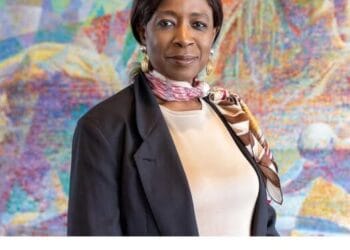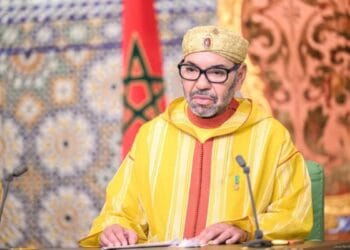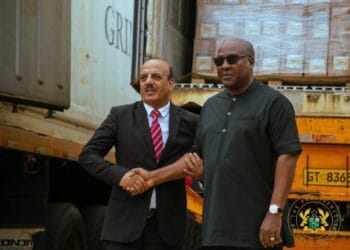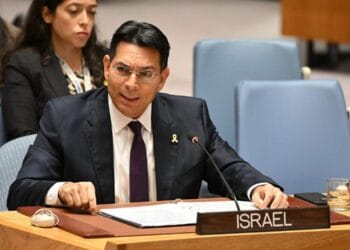Eighty years after the end of World War II (WWII), the world is marking the anniversary with mixed emotions, reflection, remembrance, and renewed fear that history may be repeating itself.
From the United States, the United Kingdom, Russia, and China, key actors in ending the War, to smaller nations, parades, memorials, and solemn moments of silence have echoed across the globe in memory of the estimated 70 million people who perished, about 3 to 3.7 per cent of Earth’s population at the time.
Get more exclusive breaking news updates on our WhatsApp channel .
The Soviet Union bore the heaviest loss in Europe, with estimates of between 8.8 and 10.7 million soldiers and 10.4 to 13.3 million civilians dead, while China, Germany, and Japan also suffered massive casualties. The war’s end in August 1945, following Japan’s surrender, brought relief to a war-weary world and a determination never to relive such destruction.
Out of the ashes of that global conflict rose the United Nations (UN), established on October 24, 1945, to maintain international peace and security, promote human rights, and advance global cooperation. For decades, the UN helped prevent another world war, aided disaster-stricken regions, and fostered decolonisation and development.
Yet, eighty years later, that hard-won peace appears fragile. Geopolitical tensions are again rising, and the world is witnessing the return of patterns that once plunged it into chaos.
British historian Timothy Garton Ash warns that this 80th anniversary “feels tinged with fear,” citing Russia’s invasion of Ukraine, the rise of non-Western powers uninterested in democracy, and strained transatlantic ties under US President Donald Trump. “The post-WWII global order is crumbling,” he observes.
Wars in Ukraine, Gaza, and Sudan continue to rage into their third or fourth years, with peace talks faltering. Fighting in Eastern Congo, renewed tensions between India and Pakistan, and a widening Middle East crisis have deepened instability. Hundreds of thousands have died, millions have been displaced, and vast regions have been reduced to ruins.
The 80th UN General Assembly recently convened amid what analysts described as one of the most volatile moments in the organisation’s history. President Trump openly criticised the UN, questioning its purpose and effectiveness in addressing migration and global insecurity. “What is the purpose of the United Nations?” he asked. “It’s not even coming close to living up to its potential.”
According to the Institute for Economics & Peace (IEP), geopolitical risks now exceed levels seen during the Cold War. Rising military spending, stalled nuclear disarmament, and weakening multilateralism have reshaped the world into a fragmented power structure, driven by technological dominance and economic interdependence.
While China’s influence continues to expand, emerging powers such as Brazil, Türkiye, South Africa, Indonesia, and the UAE are asserting themselves in global affairs. The UN warns that competition among major powers has intensified, often destabilising smaller nations and worsening global divisions.
Rosemary DiCarlo, the UN Under-Secretary-General for Political and Peacebuilding Affairs, notes that peace operations now operate in “an increasingly fragmented geopolitical landscape” marked by armed groups and the weaponisation of technologies such as Artificial Intelligence and drones.
UN Secretary-General António Guterres has urged nations to “choose peace and cooperation over chaos,” stressing the urgent need to strengthen the UN’s role. He lamented that “for every dollar invested in building peace, the world spends US$750 on weapons of war.”
Recalling the organisation’s founding after WWII, Guterres said nations had created the UN “as a practical strategy for the survival of humanity.” Now, he warned, the world faces an even more unforgiving reality: “We confront again the question our founders faced, only more urgent, more intertwined, more unforgiving.”
The Secretary-General described a world “marked by violence, hunger, and climate disaster,” where “the pillars of peace and progress are buckling under the weight of impunity, inequality, and indifference.”
The 2025 Global Risks Report by the World Economic Forum (WEF), titled “A World on the Brink,” paints a similarly grim picture. Based on global expert surveys, it identifies armed conflict, disinformation, and environmental degradation as the most pressing threats. Nearly a quarter of respondents cited “state-based armed conflict” as the greatest risk to global stability and economic growth in 2025.
The report urges renewed international cooperation to prevent further escalation and strengthen global resilience.
Eighty years after the guns fell silent in 1945, the world stands again at a crossroads. With mounting ideological divisions, violent extremism, and waning respect for the UN’s principles, peacekeeping remains a lifeline for millions who still hope for a future without fear.















